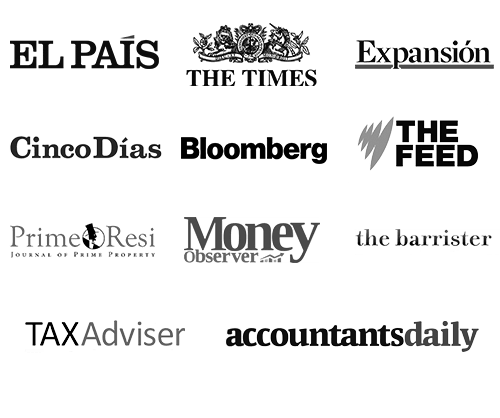COVID-19 and the franchise landscape. Spain is one of Europe’s leading consumer markets, partly aided by its role as the second most popular tourist destination in the world. Franchisors have found particular niches in facilitating their expansion in the key coastal areas and the capitals. Today, Barcelona and Madrid are global brands in themselves, where successful global names are constantly trying to position themselves as local champions. While the economic impact of the pandemic is still to be determined, and will certainly be dramatic in particular sectors, others will not suffer so much and are expected to recover quickly once the health situation is under control.
In particular, retail and other foot-traffic dependent sectors have been mostly affected in the short-term. However, it is clear that others, like hospitality and aviation, will take longer to recover and must readapt to the new situation. Where does that leave franchising? It is clear that supply chains, staffing, sales, channels, marketing, investment and more will have to be rethought in light of restrictions and changes.
However, the outcome need not be catastrophic; and, in fact, some businesses could prosper and emerge reinforced from this unexpected crisis. The first step is to analyse the legal implications of franchising today. Then, the practical implications of this crisis and its legal ramifications. How can the worst possible outcomes be avoided?
Legal implications for franchising in the pandemic
Franchise agreements are business contracts. As a result, they contain clauses which are meant to be relied on during an emergency. Here are some examples.
- Force majeure clauses refer to the situation where one of the parties finds it unable to fulfil its obligations because of an extraordinary event; the pandemic being a perfect example. The term is employed in litigation to justify problems with contract completion.
- An alternative to it is the adverse change clause, where parties can voluntarily choose to finalise an agreement early if circumstances have changed dramatically; again, the pandemic fits this description.
- Finally, in previous instances franchisors have discharged contracts when their delivery has been frustrated. That is, it is clearly impossible for the other party to fulfil its obligations and it is therefore relieved from them.
Of course, these are last instance clauses. In an ideal world, franchisors and franchisees should sit down to negotiate which is the most beneficial way to keep the business running. Renegotiating fixed fees like leases, or adjusting timelines, can be helpful ways of mitigating conflict and allowing the franchsing relationship to continue. Considering the temporary effect of the most restrictive measures against the pandemic, in most cases it pays off to be patient and renegotiate rather than terminate existing contracts.
Any good lawyer, like those at Del Canto Chambers, will advise clients to avoid costly litigation, which can also be very time-consuming in these difficult times. Any kind of firm, franchisor or franchise, should consider ways of accommodating the impact of the pandemic and the economic crisis without breaking long-standing and fruitful business relationships. Let’s examine some of these practical ways of dealing with unexpected issues.
Practical considerations for franchisors and franchisees under Covid-19
There are many ways in which franchisors and franchisees can seek solutions to unexpected issues during the pandemic. In particular, considering past crises and applied solutions, there are the following:
- The opening or maintenance of clear channels of communication between both sides of the franchising agreement. Ideally, these conversations should also include the wider supplier network and even other stakeholders, like customers (depending on the sector). Starting in this honest and direct way can help solve many issues.
- From the start, franchisors should have a flexible disposition towards payment relief or at least its deferment. The current crisis is different as, for some sectors, it has mostly implied a temporary freezing of economic activity. As soon as the health situation is under control, certain industries will rapidly recover and almost reach pre-pandemic levels. Being flexible today can help a lot in recovering ahead of the competition.
- As leaders in the supply chain, franchisors must be proactive in developing and promoting health and safety rules. Importantly, the public must feel that their engagement with the brand and its products is safe. While franchisees must also make an effort, it is mostly the responsibility of lead firms to ensure that all of its partners are correctly following the rules according to national sensibilities.
- Finally, franchisors should also be proactive in identifying government plans and subsidies which franchisees and selected partners might be able to use. Due to their improved awareness of the international context, lead firms will be better positioned to assist franchisees in securing this public assistance.
The idea is that communication, flexibility, health and safety and government support will help business involved in franchising survive the worst effects of the crisis. Like governments, prevention and adaptation to the new context should be a goal for the whole commercial network.
For example, rather than being surprised by unexpectedly bad financial results, businesses should be transparent and confront problems in their projections from the start. This transparency will help improve business and public relations. Additionally, the brand might have to re-examine its consumer-facing activities, particularly marketing, as the pandemic might have altered or blocked some of its most profitable channels. For example, it might be worth wondering whether certain steps in the supply and commercialisation chain could be delivered online.
Finally, in the worst of circumstances, franchisors should still avoid litigation and try to facilitate franchisee exit. These turbulent times require most of the attention being devoted to reorganising enterprises for survival in a post-pandemic world. Adding unnecessary costs to franchisors and connected suppliers can generate mistrust for future business collaborations; perhaps in better times.
Franchising during Covid-19: Plan ahead, act today
While nobody could have predicted the impact of the current pandemic, it is equally unwise to expect things returning to normal anytime soon. The only way to prosper today is to plan ahead. At Del Canto Chambers, we provide a wide range of services for both franchisors and franchisees. We can offer our help and expertise and explain your rights and obligations during the business disruption caused by COVID-19. We take a clear and practical approach to our clients’ needs, ensuring that we understand the business plan and offer the best-suited solutions to meet their commercial goals.
Our multinational team provides in-depth counselling in transactions and regulatory matters for the complete range of the franchisor’s business and legal needs, from establishing and growing systems to managing franchisor and franchisee relationships. Our team also consists of litigators who are experienced at successfully resolving franchise disputes, whether they involve core franchise law or franchise-related litigation.
By Del Canto Chambers
Contact Us
Del Canto Chambers is a leading London Chambers specialising in commercial law and tax, both domestic and international.
We can offer you extensive advice and guidance in putting the right legal structure in place for your new business. Our legal experts can work with you throughout the life of your enterprise, ensuring that it has a sound basis and that all compliance issues are properly dealt with.
To make a no-obligation enquiry, please either call us now on:
+44 2070 430648 or Make An Online Enquiry.





